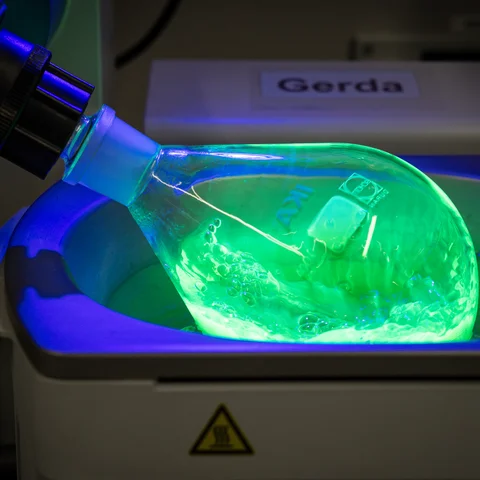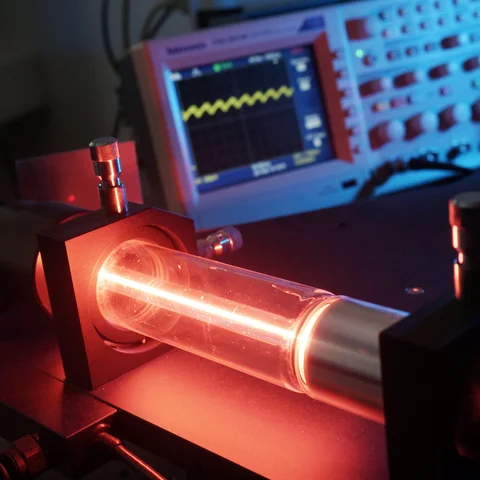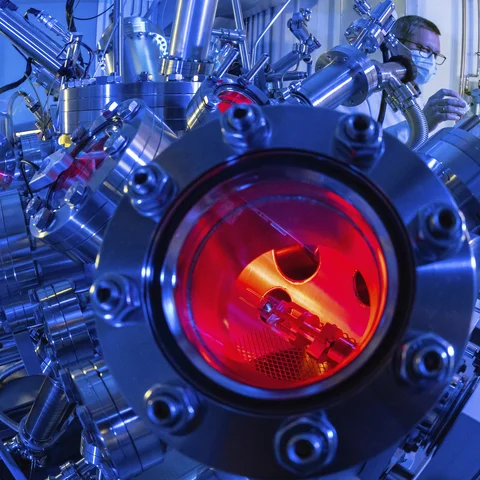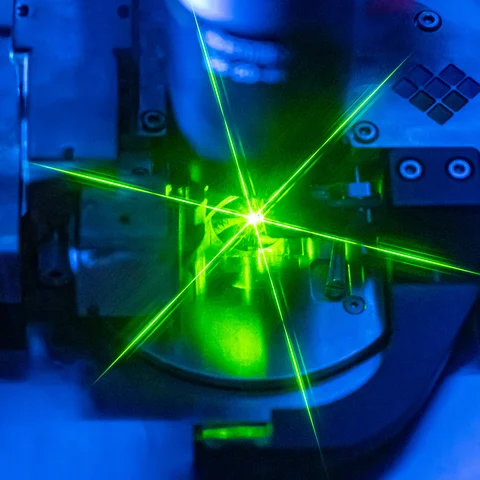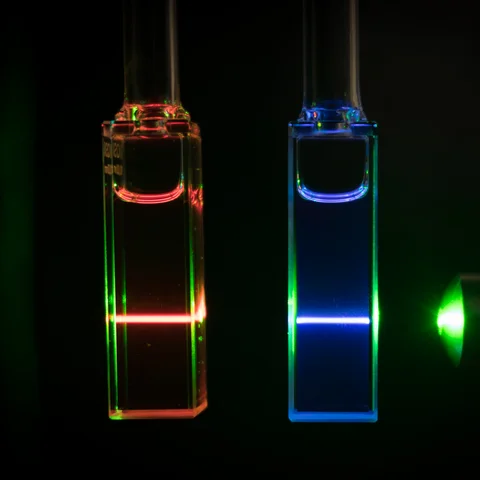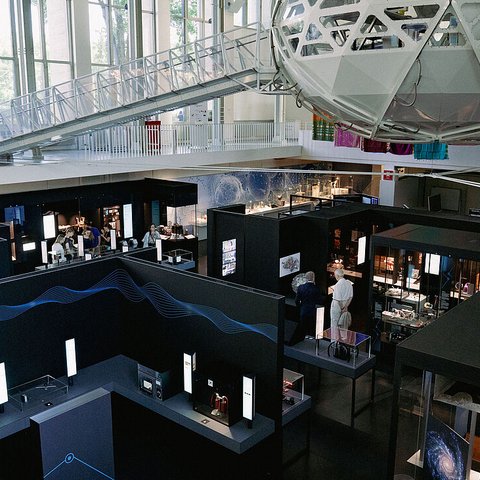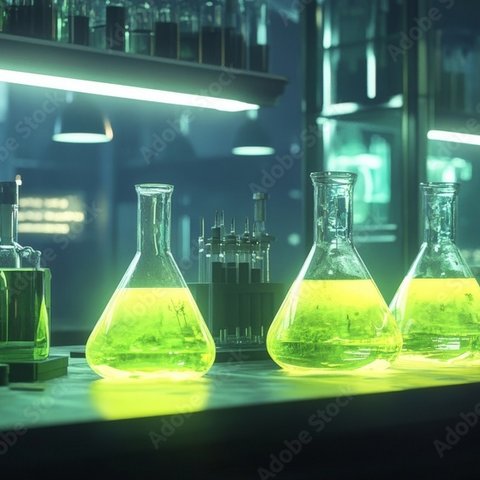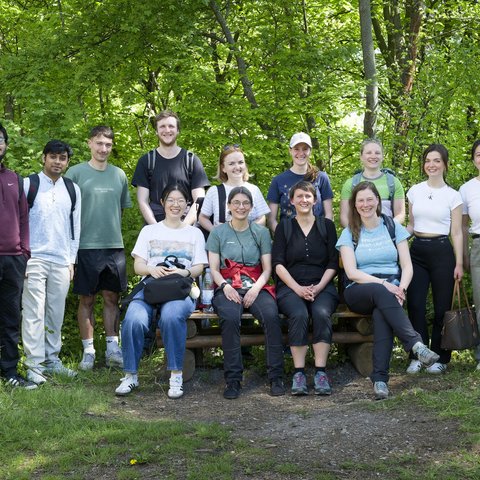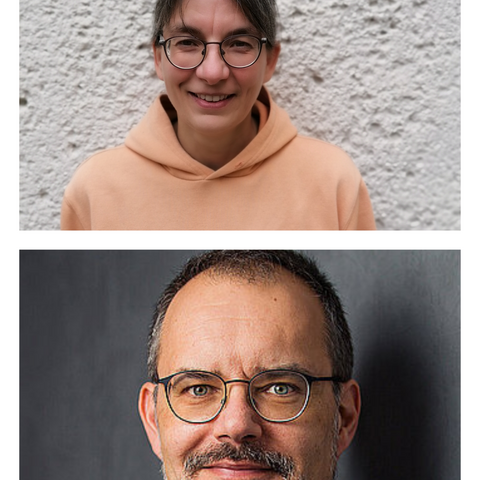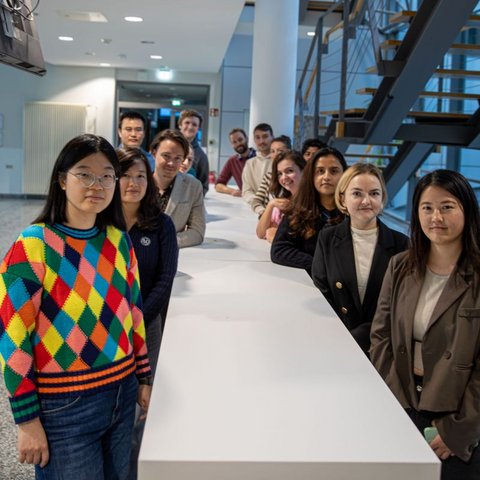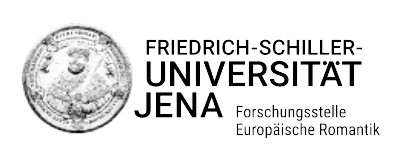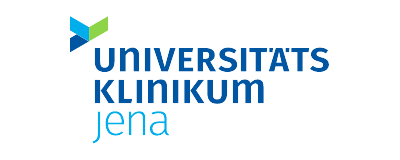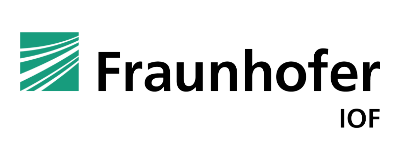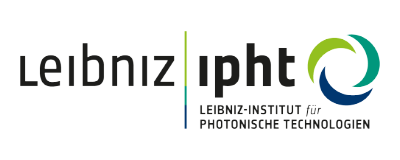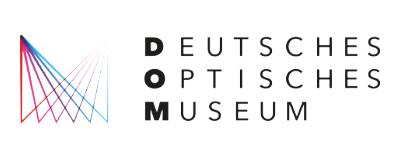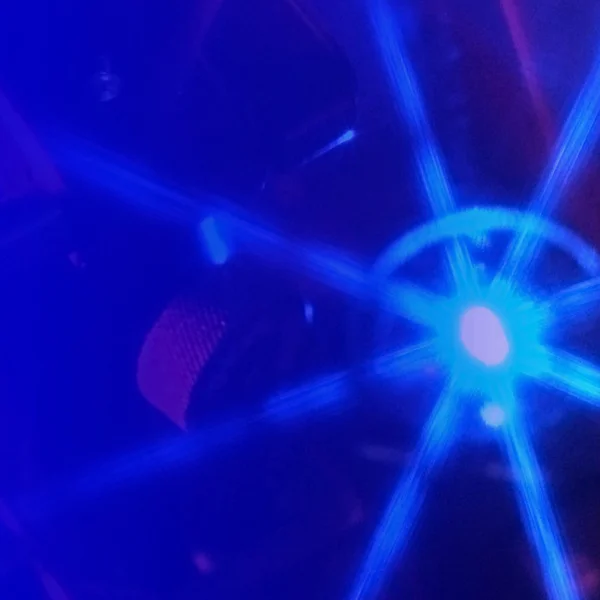
The Research Training Group PHINT focuses on using light to induce transient structural changes in interfaces and membranes. We explore how these changes are connected to the overall structure, light-driven reactivity, and the translation of local, light-induced chemical events into macroscopic property changes.
News
GRK 3014
Life as we know it is – to a large extent – based on photosynthesis, i.e., a light-driven process, in which the absorbed light is used to separate charges across a membrane. The resulting spatially separated redox-equivalents are used to drive the synthesis of high-energy molecules. In modern technology, light-based processes are key to modulate the function of cells, for advanced material fabrication, e.g., lithography, or data handling by fast switching of states of matter or utilizing light itself as the carrier of information. Finally, light is an indispensable tool for observation, e.g., in super-resolution microscopy for characterizing living species as well as inanimate matter. Light drives and probes fundamental processes underlying macroscopic biological, chemical and physical properties and functions; and it can be used to precisely control systems and processes spatially and temporally.
The Research Training Group “PhInt” is funded by the German Research Foundation.
1st funding peroid: 1 November 2024 to 31 October 2029
